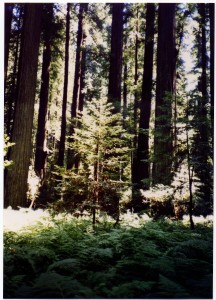 Whew. What a journey. I just returned from an arduous trek, blazing a trail thru untamed mountain wilderness of Kentucky. The doctors and lawmen back in Virginia could not help us with catastrophes there. But we enjoyed gifts along the way ~ like when lush moonlight “silvered the woods and river.” And the “hallowed, heavenly magic … a star shower.” The moonbow rose from the mist of the falls, spanning the river, bands of white streaked with red and indigo and pale green, “vivid against the froth of the falls.”
Whew. What a journey. I just returned from an arduous trek, blazing a trail thru untamed mountain wilderness of Kentucky. The doctors and lawmen back in Virginia could not help us with catastrophes there. But we enjoyed gifts along the way ~ like when lush moonlight “silvered the woods and river.” And the “hallowed, heavenly magic … a star shower.” The moonbow rose from the mist of the falls, spanning the river, bands of white streaked with red and indigo and pale green, “vivid against the froth of the falls.”
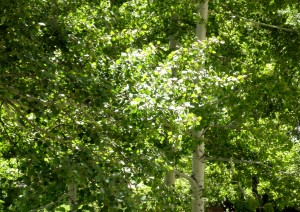 But the journey was long. Through springtime teasing with warm breeze but dumping snow at night, “the cold polishing every rock and speck of grass like barley sugar.” Summer with its veil of green protecting us but also hiding danger. And heated “air shimmering like a cast-iron skillet.” Autumn with its canopy of color, treacherous when wet and fallen.
But the journey was long. Through springtime teasing with warm breeze but dumping snow at night, “the cold polishing every rock and speck of grass like barley sugar.” Summer with its veil of green protecting us but also hiding danger. And heated “air shimmering like a cast-iron skillet.” Autumn with its canopy of color, treacherous when wet and fallen.
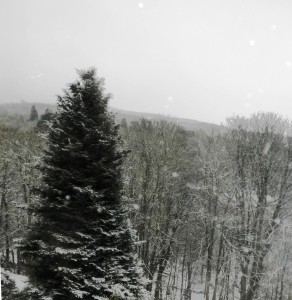 I ache with the walking and carrying supplies. My mind and senses cannot rest after months of being alert to any subtle change. Getting lazy in observing allows death to strike. I wonder if I will ever settle, not react to every slight sound. Every variance of breeze or temperature or color of the sky …
I ache with the walking and carrying supplies. My mind and senses cannot rest after months of being alert to any subtle change. Getting lazy in observing allows death to strike. I wonder if I will ever settle, not react to every slight sound. Every variance of breeze or temperature or color of the sky …
But wait. As I rouse, a book slips from my fingers and I sit in my own room. I glance around. Gradually senses adapt as I drift out of story-world reality of A MOONBOW NIGHT and into my 21st-century home.
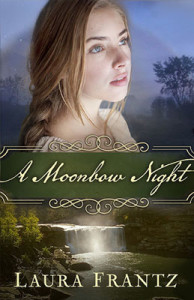
As a reader I love a good story. One that invites turning pages quickly, chasing plot turns with characters that have captured my interest. I want to be so immersed in a book that closing the cover and returning to my time and place is a shock. Laura Frantz writes stories that come alive. A venture she succeeds in every time. For a reader, that is enough to know opening A MOONBOW NIGHT will bring satisfaction.
Frantz creates living, breathing characters. Though this is her fourth novel set in l770-1790 Kentucky, her characters are always fresh, distinct, and seem to emerge perfectly from the era. Not a retread among them.
She places these characters in a time of keeping delicate balances. Frontier living was living on a knife’s edge. Survival was tentative at best. The times demanded one be constantly alert and correctly interpret even the most subtle of things around them. A rapidly-hidden glance. A slight weather shift. A near-indiscernible sound. A barely-there hint of something out of order—a fallen leaf out of season, birdsong gone silent, hoof print with no shoe… Missing natural or human clues left one vulnerable. Death could be sudden—in a rockfall, a storm, gunshot, snakebite.
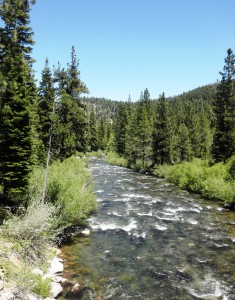
Much of MOONBOW unfurls as Tempe Tucker or Sion Morgan (with various companions) travel. Sometimes they trek familiar, narrow paths; other times unfamiliar territory, be it tough terrain, rough rivers, forests lost in fog or laced with enemies. Many miles are walked, then backtracked. Yet throughout Frantz keeps the action moving in a setting that some might see as an endless slate of green and wood to forge through. Not once does she revert to lazy repetition.
 With her extraordinary observation and writing skill, every turn of trail and fortune unfolds in a vividly-drawn setting. Much like inhabitants of extreme northern climes have a vast number of words for snow, Frantz finds a seemingly infinite variety of sights, sounds, and senses within which to place the action. No cookie-cutter travelogue descriptions here. Rather, an endless diversity of vegetation impedes progress or provides food, fuel, or healing agents as the characters move thru the forest. A variety of sounds soothe … or frighten, an array of sights assist in navigating the journey … or stirring emotions.
With her extraordinary observation and writing skill, every turn of trail and fortune unfolds in a vividly-drawn setting. Much like inhabitants of extreme northern climes have a vast number of words for snow, Frantz finds a seemingly infinite variety of sights, sounds, and senses within which to place the action. No cookie-cutter travelogue descriptions here. Rather, an endless diversity of vegetation impedes progress or provides food, fuel, or healing agents as the characters move thru the forest. A variety of sounds soothe … or frighten, an array of sights assist in navigating the journey … or stirring emotions.
An example is when Tempe recalls first traveling to Kentucky. Weeks upon weeks amid a long, snaking column of people and animals, eating cornbread and meat that tasted of wood smoke and ashes, clothes full of briars and burrs. Then one night she was lost in a sunset, “a blaze of red and gold, the sky pretty as a party dress.”
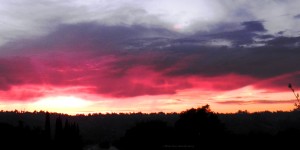
The germ of the story is a little-publicized event in the life of Daniel Boone. Frantz says learning about it as a child impacted her greatly. Around that incident, she’s woven a plot as filled with twists and turns as paths early surveyors had to travel through the wilderness. Sion, Tempe, and her family~indeed all the secondary characters spring to life so authentically connected to the era and location that MOONBOW seems a tale of history told, not a novel spun from Frantz’s imagination. Even knowing beforehand that part of the story was fact-based, as I read I could not find the line between fact and fiction.
Frantz’s diction is another area where she displays her skill and her readers benefit tremendously. Her language is fresh, evocative, sensory, and captures the dialect of the times.
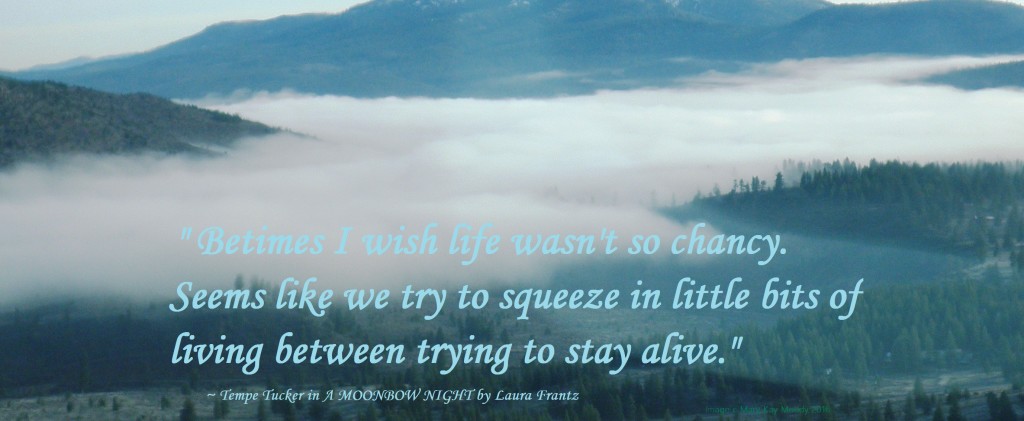 She also captures the unsettledness and danger of 1777, a year of much violence and bloodshed in Kentucky known as “the bloody sevens.” Indian attacks grew more common. Constant vigilance and heightened senses were required. The story shows the toll vigilance takes, and the price of being careless.
She also captures the unsettledness and danger of 1777, a year of much violence and bloodshed in Kentucky known as “the bloody sevens.” Indian attacks grew more common. Constant vigilance and heightened senses were required. The story shows the toll vigilance takes, and the price of being careless.
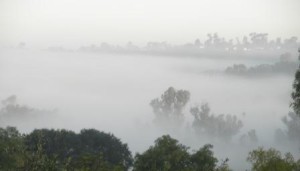 Tempe, as expert as any professional guide, regularly finds solace from the past that haunts her by wandering through the woods. But now fewer patrons stop at their inn, and fog settles in. “The lull unsettled her. She didn’t dare venture far with the fog. It seemed to take the land captive whilst scrambling her usually sound sense of direction. Without the sun or North Star as her guide, she felt adrift.” [p 65]
Tempe, as expert as any professional guide, regularly finds solace from the past that haunts her by wandering through the woods. But now fewer patrons stop at their inn, and fog settles in. “The lull unsettled her. She didn’t dare venture far with the fog. It seemed to take the land captive whilst scrambling her usually sound sense of direction. Without the sun or North Star as her guide, she felt adrift.” [p 65]
 “Tempe was struck right then by how chancy life was. Like a spider’s web or an eggshell or a butterfly’s wing. Their world seemed made of little losses. She was always having to say goodbye, part with something. A brilliant sunset. A blossom. A sweet feeling.” [p 182]
“Tempe was struck right then by how chancy life was. Like a spider’s web or an eggshell or a butterfly’s wing. Their world seemed made of little losses. She was always having to say goodbye, part with something. A brilliant sunset. A blossom. A sweet feeling.” [p 182]
And again as Tempe trekked toward a favorite place:
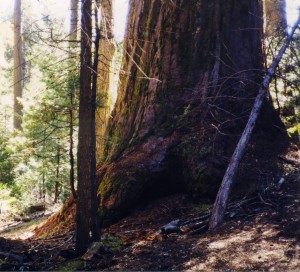 “A hymn stirred in her spirit. Her mouth opened, then shut. She sensed the meadow wasn’t entirely hers … she felt a cloudiness. Not fear, just a foreboding, a heightening tension. She stepped behind a chestnut, its bulk broad as two men.
“A hymn stirred in her spirit. Her mouth opened, then shut. She sensed the meadow wasn’t entirely hers … she felt a cloudiness. Not fear, just a foreboding, a heightening tension. She stepped behind a chestnut, its bulk broad as two men.
Raven.
He crossed the clearing, moving with an easy grace, gaze turned toward her as if telling her she was plain as a parakeet with its noisy chatter and brilliant plumage. She looked down at her showy skirt, dyed pumpkin orange … Half Chickamauga Cherokee, Raven seemed rootless, restless, living between two worlds, never quite at home in either. Whenever she saw him he was on the move, usually on the Warrior’s Path. But today he was in this very meadow, near her beloved Fairy Rock.
She felt … wronged.
Chafing … she stepped from behind the tree as if to banish any territorial thoughts. This was Indian ground be it anyone’s. She had no special claim … ‘Twas more Raven’s than hers.” [p 70]
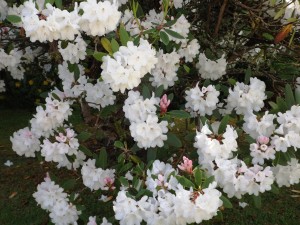 Though the story is set in a turbulent, violent era, and covers many raw, tough days, do not fear it’s a dark and overwhelming story. That all is relieved when Frantz peppers the story with beautiful observations, joyous experiences, noble deeds, glimmers of hope, as well as snatches of humor. In this example Tempe, concerned by the reserve between her brother Russell and her friend (clearly smitten with him) decides to intervene.
Though the story is set in a turbulent, violent era, and covers many raw, tough days, do not fear it’s a dark and overwhelming story. That all is relieved when Frantz peppers the story with beautiful observations, joyous experiences, noble deeds, glimmers of hope, as well as snatches of humor. In this example Tempe, concerned by the reserve between her brother Russell and her friend (clearly smitten with him) decides to intervene.
“Mama, maybe it’s time to give Russell a talking to.”
[Her mother’s] dark brows arched. “What for?”
“Don’t you want some grandchildren?”
“I’d like a wedding first.” [p 95]
Laura Frantz’s skill as a story-teller astonishes me. A MOONBOW NIGHT is filled with accurate historical detail, intricately woven, and beautiful. As a writer, I re-read her novels as a master class on technique. Though I must say studying them to explain details of writing craft feels like an intrusive act that violates their integrity and beauty, much like dissecting a delicate flower or pinning a lovely butterfly.
Thorough research is another of Frantz’s hallmarks. I could fill a page listing the areas she has mastered to give us the verisimilitude in this story—history, tracking, Indian languages, plant/animal knowledge, food preservation, weapons, to name only a few. All that plus her keen observational skills, and familiarity with and love of the region combine to create a world so immediate that a reader cannot help but inhabit it. You will find yourself holding your breath, the hair on the back of your neck tingling as you sense, without knowing why, impending doom. And relief will make your legs go weak when help arrives.
I think the magic of Frantz’s writing (which in my experience is shared by only a few) is that her stories are not so much read as lived.
Visit with Laura on her blog or Facebook or Pinterest. She’ll be thrilled to meet you.
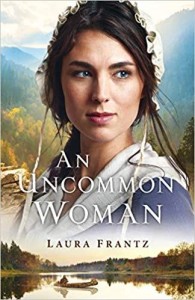
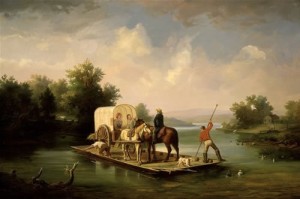 Keenly aware of possible consequences meted out by the clash of cultures of settlers and Indians, she just sets to work daily whether on their farm or at the family’s ferry across the Buckhannon River. She doesn’t waste time dwelling on possibilities or losses, but uses wisdom gained through experience to make cautious choices.
Keenly aware of possible consequences meted out by the clash of cultures of settlers and Indians, she just sets to work daily whether on their farm or at the family’s ferry across the Buckhannon River. She doesn’t waste time dwelling on possibilities or losses, but uses wisdom gained through experience to make cautious choices.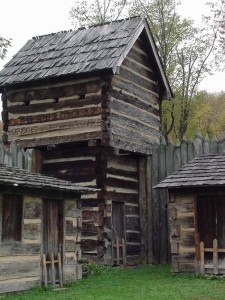 When Colonel Tygart from the nearby fort meets the Swan family, we watch as interest and attraction spark and grow between him and Tessa. Readers will enjoy walking with them as the tension grows and we wonder ~ Will these two souls, fractured by loss, be able to see each other as anything other than a threat? Will their environment and culture give them opportunity to develop any sort of relationship? Life is hard out there. Crops, animals, gardens, friendships, dreams—so many things die early on the frontier.
When Colonel Tygart from the nearby fort meets the Swan family, we watch as interest and attraction spark and grow between him and Tessa. Readers will enjoy walking with them as the tension grows and we wonder ~ Will these two souls, fractured by loss, be able to see each other as anything other than a threat? Will their environment and culture give them opportunity to develop any sort of relationship? Life is hard out there. Crops, animals, gardens, friendships, dreams—so many things die early on the frontier.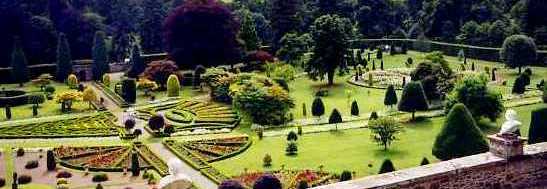
 Whew. What a journey. I just returned from an arduous trek, blazing a trail thru untamed mountain wilderness of Kentucky. The doctors and lawmen back in Virginia could not help us with catastrophes there. But we enjoyed gifts along the way ~ like when lush moonlight “silvered the woods and river.” And the “hallowed, heavenly magic … a star shower.” The moonbow rose from the mist of the falls, spanning the river, bands of white streaked with red and indigo and pale green, “vivid against the froth of the falls.”
Whew. What a journey. I just returned from an arduous trek, blazing a trail thru untamed mountain wilderness of Kentucky. The doctors and lawmen back in Virginia could not help us with catastrophes there. But we enjoyed gifts along the way ~ like when lush moonlight “silvered the woods and river.” And the “hallowed, heavenly magic … a star shower.” The moonbow rose from the mist of the falls, spanning the river, bands of white streaked with red and indigo and pale green, “vivid against the froth of the falls.”
 I ache with the walking and carrying supplies. My mind and senses cannot rest after months of being alert to any subtle change. Getting lazy in observing allows death to strike. I wonder if I will ever settle, not react to every slight sound. Every variance of breeze or temperature or color of the sky …
I ache with the walking and carrying supplies. My mind and senses cannot rest after months of being alert to any subtle change. Getting lazy in observing allows death to strike. I wonder if I will ever settle, not react to every slight sound. Every variance of breeze or temperature or color of the sky …







